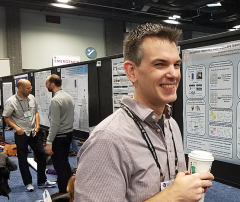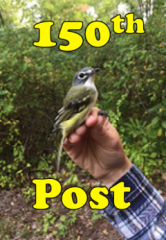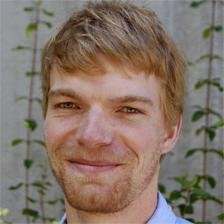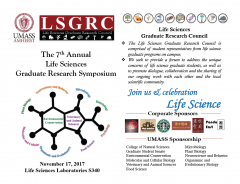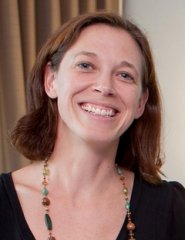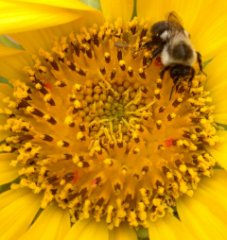News Highlights
First Annual UMass Interdisciplinary Neurosciences Conference: Wednesday, May 2, 12:30-7:00 PM
First Annual UMass Interdisciplinary Neurosciences Conference: Wednesday, May 2, 12:30-7:00 PM
This conference is meant to showcase the breadth of research on the UMass campus and in Western Massachusetts highlighting neuroscience research interests that span biology, cognition, computation, engineering, medicine, and public health. This exciting event features a half-day symposium with Keynote Speaker, Dr. Wolfram Schultz (Cambridge University) and UMass Alumni Speaker Dr. Graeme Davis (University of California, San Francisco). In addition, there will be talks from researchers in four different colleges at UMass Amherst, followed by a catered reception and poster session. Researchers from UMass and other institutions are invited to attend and present a poster on their work related to the neurosciences. Registration is free and open to all career stages. For more information and to register for the conference please go to: First Annual UMass Interdisciplinary Neurosciences Conference
Deadline for poster registration is April 18th.
New UMass Amherst, Stanford Research Identifies Plant Cell Wall Sensing Mechanism
New UMass Amherst, Stanford Research Identifies Plant Cell Wall Sensing Mechanism
An international collaboration of plant researchers this week reports yet another newly discovered role for the versatile receptor kinase, FERONIA, in the model plant Arabidopsis. The researchers say it acts as a sensor in the plant cell wall to help maintain its integrity and protect the plant from environmental assaults.
How cells sense their physical state and compensate for cell wall damage is poorly understood, say authors led by Alice Cheung at the University of Massachusetts Amherst and collaborator José Dinneny from the Carnegie Institute for Science and Stanford University. But their new analysis of plants exposed to salt stress offers the first experimental evidence and molecular mechanisms showing how FERONIA is essential for the cellular responses that ensure survival under high salinity.
Details are online now and will be in the March 5 issue of Current Biology. Read more
That's Life [Science] grad student blog publishes their 150th post
That's Life [Science] grad student blog publishes their 150th post
Graduate students in the UMass IDGP programs created That's Life [Science], an interdisciplinary outreach blog, in 2016. Since then, the group has published 150 articles covering interesting topics across life science fields for the general public. "A Day in the Life of a Bird Nerd" is their 150th article!
Podos and Remage-Healey publish Nature paper on swamp sparrows
Podos and Remage-Healey publish Nature paper on swamp sparrows
A team of researchers including Jeffrey Podos, Biology, and Luke Remage-Healey, Psychological & Brain Sciences, reported in Nature the discovery in the forebrain HVC of sensorimotor “bridge” neurons in swamp sparrows that simultaneously and selectively represent two critical learning-related schemas: the bird’s own song, and the specific tutor model from which that song was copied. Read More: Nature
Soil Researchers Quantify an Important, Underappreciated Factor in Carbon Release to the Atmosphere
Soil Researchers Quantify an Important, Underappreciated Factor in Carbon Release to the Atmosphere
Soil plays a critical role in global carbon cycling, in part because soil organic matter stores three times more carbon than the atmosphere. Now biogeochemist Marco Keiluweit at the University of Massachusetts Amherst and colleagues elsewhere for the first time provide evidence that anaerobic microsites play a much larger role in stabilizing carbon in soils than previously thought. Read More
LSGRC 7th Annual Life Sciences Graduate Research Symposium, Friday, November 17!
LSGRC 7th Annual Life Sciences Graduate Research Symposium, Friday, November 17!
The 7th annual UMass Life Sciences Graduate Research Symposium will be held on Friday, November 17. The event brings together graduate students from all areas of life sciences research at UMass to present their work in both talks (9:00am - 5:00pm, Life Sciences Laboratories Building, Room S340) and a poster session/lunch (12:30pm - 2:00 pm). This event is open to everyone who wants to learn about the fantastic life sciences work going on at UMass! The schedule for presentations is available on the LSGRC facebook page.
Crosby, Irschick Co-Direct New UMass Center for Evolutionary Materials
Crosby, Irschick Co-Direct New UMass Center for Evolutionary Materials
Polymer scientist Al Crosby and functional biologist Duncan Irschick, the inventors of the gecko-inspired adhesive, Geckskin, are co-directors of a new, system-wide UMass Center for Evolutionary Materials. It is intended to be a home for researchers from many fields who are interested in pursuing bio-inspired technologies to create new designs and products to benefit people and the environment.
Irschick explains that he and Crosby, inspired by the scientific and intellectual richness of their own collaboration and the success of Geckskin, want to see a center that will “engage people on a deep level of bio-inspiration, not as a buzz word but as a kind of intellectual playground for unstructured creativity. Such centers can be useful to foster collaborations.” Read more
Bekki Spencer Receives $2.64 Million from NIH for Preschooler Sleep Study
Bekki Spencer Receives $2.64 Million from NIH for Preschooler Sleep Study
Neuroscientist Rebecca Spencer at the University of Massachusetts Amherst recently received a five-year, $2.64 million grant from the National Institutes of Health to explore, in a series of laboratory and preschool-based studies, whether mid-day napping benefits learning in young children and helps them cope with emotions. Improving early education can enhance child development and school readiness, factors that are known to have lifelong effects on physical and mental health, she notes. Read more...
Agnes Lacreuse wins $443,755 award from NIH
Agnes Lacreuse wins $443,755 award from NIH
Agnes Lacreuse, Associate Professor in the Neuroscience and Behavior Graduate Program, recently received an R21 award from the National Institutes of Health to develop a primate model for menopausal symptoms. The title of the award is "Sleep, hot flashes and cognition: a non-human primate model for menopausal symptoms." The award is for $443,755 covering the period July 1, 2017 through June 30, 2019.
“Sunflowers as treatment and preventative for bumble and honey bee pathogens.”
“Sunflowers as treatment and preventative for bumble and honey bee pathogens.”
UMass Amherst Biology Professor Lynn Adler received a $1 million grant from the USDA’s Pollinator Health Program to study the role sunflower pollen may play in improving and preserving bee health. Professor Adler is an expert in pollination and plant-insect interactions. Read more
